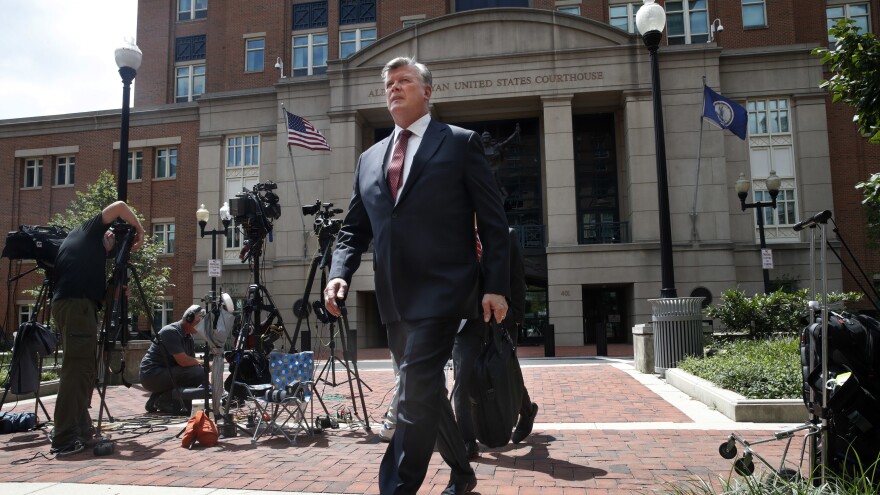Prosecutors rested their case on Monday in the federal tax and bank fraud trial of Donald Trump's former campaign chairman Paul Manafort.
Over the past three weeks, through 10 days of testimony and more than two dozen witnesses, the government's lawyers told a story about how they said Manafort evaded taxes on millions of dollars that poured in from his political consulting work in Ukraine.
After that income dried up, prosecutors say, Manafort lied to banks to get loans to continue the lifestyle to which they say he had become accustomed.
Manafort has pleaded not guilty; his attorneys say he didn't pay close enough attention to his finances to have deliberately committed the crimes of which he has been accused.
The bankers
Much of the recent testimony focused on the alleged bank fraud.
A witness on Friday detailed the level of involvement by Stephen Calk, the CEO of Federal Savings Bank, in helping Manafort get loans for which he might normally have been rejected.
Former Federal Savings Bank Vice President Dennis Raico testified that Calk pushed through Manafort's loans over the concerns of other members of the bank's leadership.
Raico said that Calk wanted a job in the Trump administration and made that known to Manafort.
Federal Savings Bank Vice President Jim Brennan testified under immunity from prosecution on Monday that there were inconsistencies, specifically involving income reporting, in Manafort's loan paperwork.
Brennan was then asked by prosecutors why such inconsistencies would matter when a bank is deciding on whether to offer someone a line of credit.
"It would go to the character of the borrower," Brennan said, "which should mean that we would raise a red flag."
Brennan said the $16 million that Manafort received was among the largest loans the bank had ever made. Despite the doubts about Manafort's ability to repay them, the loans "closed because Mr. Calk wanted them to close," Brennan said.
Jurors heard earlier in the trial that Manafort reached out to the Trump transition team to discuss the prospect of Calk becoming secretary of the Army.
The bank did not make money on the loans, Brennan said. It wrote them off as losses by the end of 2017.
What's next
Court is due to resume on Tuesday morning. Judge T.S. Ellis III is expected first to rule on a motion by Manafort's lawyers asking him to throw out the charges, a standard defense maneuver.
After that, if the judge allows the trial to move forward, Manafort's defense attorneys will get the chance to make their own case. They will have the opportunity to call witnesses, although it's unclear whether they might.
Manafort is not expected to be called to testify on his own behalf.
Up to this point, the defense strategy has been to pin any financial crimes on Manafort's former business partner Rick Gates, who is cooperating with prosecutors as part of a plea agreement.
Copyright 2023 NPR. To see more, visit https://www.npr.org.







